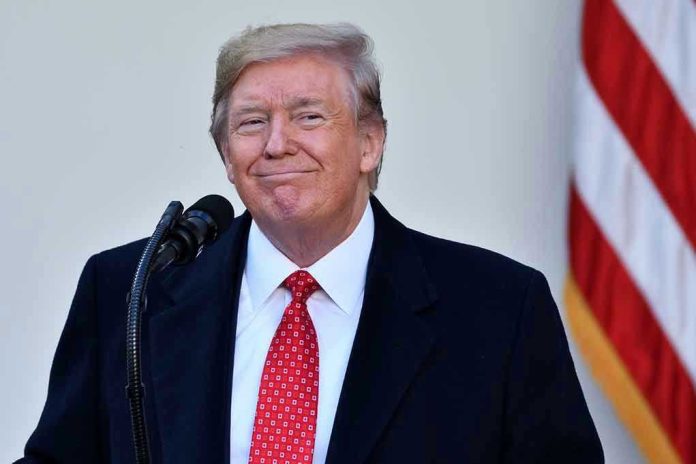
The Trump administration’s recent acquisition of a major stake in Intel signals a bold shift towards government intervention in private industry.
Story Highlights
- The U.S. government acquires an $8.9 billion stake in Intel.
- President Trump considers similar strategies for other strategic firms.
- This marks a significant shift in U.S. economic policy.
- Concerns arise over increased government oversight in the private sector.
U.S. Government Acquires Stake in Intel
In a historic move, the U.S. government has acquired an $8.9 billion stake in Intel, marking the first major equity stake in a leading technology company in decades. This unprecedented step was officially announced on August 23, 2025, following the conversion of $5.7 billion in CHIPS Act grants and $3.2 billion from the Secure Enclave program into equity. The acquisition positions the federal government as one of Intel’s largest shareholders, reflecting a significant policy shift towards more direct involvement in strategic industries.
The Trump administration, driven by national security and economic competitiveness motives, is contemplating similar stakes in other major U.S. firms. This move aims to bolster technological leadership and supply chain resilience, particularly amidst ongoing U.S.-China trade tensions. Intel, as the only U.S. firm conducting leading-edge semiconductor research and development domestically, is seen as crucial to these efforts. The administration’s strategy has drawn both applause and criticism, highlighting the tension between national security concerns and free-market principles.
Potential Expansion of Government Investment
Following the Intel deal, the Trump administration has signaled its intent to explore additional equity investments in other strategic sectors, particularly technology and defense. Kevin Hassett, Director of the National Economic Council, emphasized the importance of securing U.S. technological dominance and protecting national interests. These moves could potentially normalize government equity stakes in private companies, significantly impacting market dynamics and corporate governance.
Critics of the policy warn of potential market distortions and reduced competition, as the government could be seen as picking “winners” in the industry. However, supporters argue the necessity of such measures in the face of national security threats and global technological competition.
Implications for the Tech Industry and Beyond
The acquisition has immediate and long-term implications for Intel and the broader tech sector. In the short term, Intel gains a substantial capital boost for expansion, along with increased government oversight. In the long run, this interventionist approach may alter the landscape of U.S. industrial policy, potentially chilling foreign investments and shifting towards more protectionist strategies. Intel shareholders face potential dilution of shares, though the partnership may lead to increased stability and government contracts.
As this policy unfolds, it raises important questions about the role of government in private enterprise and the balance between national security and economic freedoms. The move has sparked public debate and could lead to increased tensions with trading partners like China, as the U.S. asserts more control over its domestic production capabilities.
Sources:
Intel-Trump US Government Stake
Intel and Trump Administration Reach Historic Agreement




